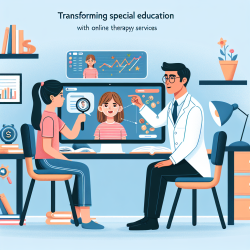Speech-language pathologists (SLPs) are constantly seeking ways to enhance their practice and improve outcomes for children with communication disorders. One invaluable resource in this quest is the research presented in "Phonological Disability in Children (2nd edition)" by David Ingram. This comprehensive work, now in its second edition, continues to influence the field of phonological disorders and development profoundly.
The book outlines the evolution of phonological study and its implications for assessment, intervention, and the selection of augmented communication strategies. Ingram's work, grounded in a linguistic approach to phonology, has been seminal in shaping current practices in diagnosing and treating phonological disabilities in children.
Implementing Phonological Research in Practice
To translate the outcomes of this research into practice, SLPs can focus on several key areas:
- Assessment and Diagnosis: Ingram's work emphasizes the importance of a detailed linguistic analysis of a child's phonological system. By adopting his methodologies for data collection and analysis, practitioners can achieve a more nuanced understanding of each child's specific challenges, leading to more targeted and effective interventions.
- Intervention Strategies: The book provides insights into the nature of deviant phonology and offers guidance on remediation. SLPs can apply these principles to develop intervention programs that are tailored to the individual needs of their clients, thereby enhancing the efficacy of their therapeutic efforts.
- Augmented Communication: For children with severe phonological disabilities, augmented communication strategies can be life-changing. Ingram's work offers a framework for selecting the most appropriate technologies and approaches based on a comprehensive assessment of the child's abilities and needs.
- Continued Professional Development: The field of phonological research is dynamic, with new developments continually emerging. By engaging with Ingram's work and related current research, SLPs can ensure their practice remains at the cutting edge, offering the best possible support to children with phonological disabilities.
Encouraging Further Research
While "Phonological Disability in Children" provides a solid foundation, the field of phonology is vast and ever-evolving. SLPs are encouraged to delve deeper into specific areas of interest, such as the impact of bilingualism on phonological development or the use of technology in phonological assessment and intervention. By pursuing further research, practitioners can contribute to the ongoing development of the field, ultimately improving outcomes for the children they serve.
Ingram's work underscores the importance of a rigorous, research-based approach to phonological disorders. By integrating the insights gained from "Phonological Disability in Children" into their practice, SLPs can enhance their ability to diagnose and treat children with these challenges more effectively. Moreover, by fostering a culture of ongoing research and professional development, practitioners can continue to advance the field, ensuring that they remain responsive to the changing needs of their clients.
To read the original research paper, please follow this link: Phonological Disability in Children (2nd edition).










